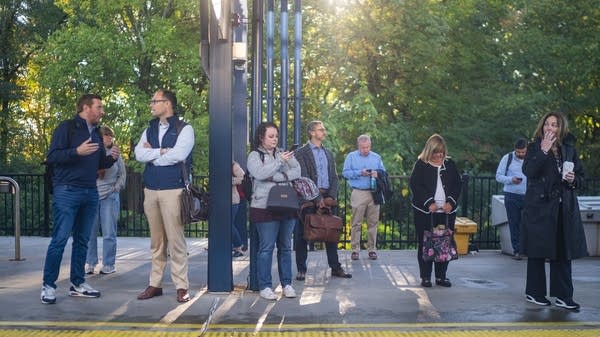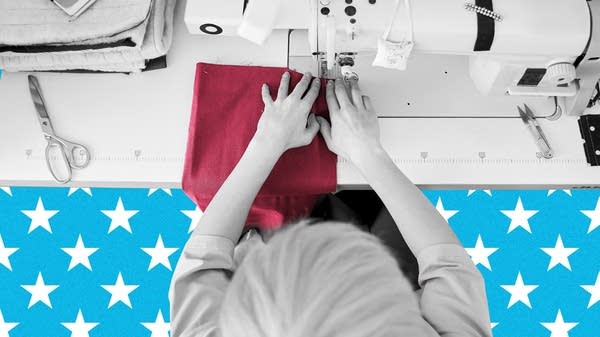Unemployment fears jump to pandemic levels, New York Fed finds
Economic uncertainty is seeping into consumer expectations, which can become something of a self-fulfilling prophecy, an Aspen Institute economist says.

As more economic data comes in, we’re learning more about how consumers feel about where this economy is headed. It probably comes at no surprise that it’s not looking good.
A Federal Reserve Bank of New York survey out Monday showed that American consumers are especially concerned about the job market. Mean unemployment expectations — basically, whether people think U.S. unemployment will be higher a year from now — jumped 4.6 percentage points to 44%, the highest reading since another uncertain time: April 2020.
After years of a resilient labor market, this new data shows U.S. consumers are starting to feel shaky.
“They're feeling very insecure right now economically, and so feel that they're at greater risk at losing a job in the near future,” said Alí Bustamante, director of the worker power and economic security program at the Roosevelt Institute.
Shifts in economic policy are driving that insecurity, said Greg Wright, an economics professor at the University of California, Merced. That feeling isn’t caused by any one tariff, but rather the onslaught of tariff policy changes.
“A lot of companies are probably at this point just taking a kind of wait-and-see attitude. And a wait-and-see attitude is kind of, you know, a slow-growth attitude,” Wright said.
“I think that level of uncertainty is basically just poison for businesses and households,” said Josh Bivens, chief economist at the Economic Policy Institute.
He said everyone is trying to figure out how to spend their money over the next year.
“If you're going to build a new factory or expand your business, you really need to know what the various tariff levels are like in different countries,” he said. “And so until you have clarity on that, you're not going to do a lot of investment.”
That uncertainty is seeping into consumer expectations, which can become something of a self-fulfilling prophecy, said Luke Pardue, policy director at the Aspen Institute’s Economic Strategy Group.
“When consumers are confident about their ability to have a job a year from now, they'll spend money, and then that creates the dynamics that allow for jobs growth,” he said.
But when consumers are not confident and start pulling back?
“That drags down the economy and creates either a slowdown or a recession,” Pardue said.
In other words, where consumers think we’re going helps pave the road to where we end up.







